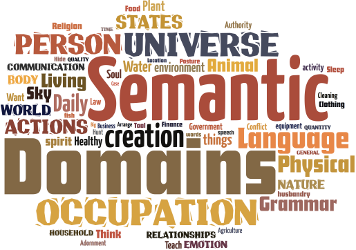9.4.1.2 Aspect--dynamic verbs
Use this section for verbal auxiliaries, affixes, adverbs, and particles that indicate aspects of dynamic verbs. Aspects describe the temporal contours of a situation. They may be combined with any of the tenses, either in the same morpheme or in combinations of morphemes. The following definitions are taken from Bybee, Joan, Revere Perkins, and William Pagliuca. 1994. The evolution of grammar. Chicago and London: University of Chicago Press.
habitual: the situation is customary or usual, repeated on different occasion over a period of time. English 'used to' is past habitual; English 'Nancy sings' is present habitual.
continuous: a single situation is viewed as in progress, as maintained over a period of time; also called "durative." The English "Progressive" is a continuous restricted to dynamic words. English 'I am reading; *I am knowing the number'.
continuative: keep on doing what is being done. Restricted to dynamic words.
progressive: the action takes place simultaneously with the moment of reference, 'to be in the process of...'. This is more restricted than the English Progressive, which may be used for events that are not actually in progress at reference time: 'I am writing a book' may be used even if the speaker is not at that moment writing.
excessive duration: action is extended over a long period of time, longer than normal for that action.
limited duration: action performed for a relatively short or bounded period of time.
iterative: the action is repeated on one occasion; usually restricted to dynamic words, often further restricted to semelfactive words.
frequentative: action occurs frequently, not necessarily habitually, nor necessarily on one occasion, as is the iterative.
imperfective: the situation is viewed as unbounded in the sense that it is habitual, continuous, progressive, or iterative.
perfective: the situation is viewed as bounded temporally. It cannot be simultaneous with the moment of speech; in the non-past it is sometimes interpreted as future.
completive: to do something thoroughly and to completion, e.g. 'to shoot someone dead, to eat up'.
inceptive: the action or event begins. We are distinguishing this from the beginning of a state.
delimited: action is performed only a little.
The preceding terms or "Aspects" are not usually relevant to stative words.
What general words refer to an aspect of an event?
aspect
What words are used to indicate that something has begun?
begin, start, commence, beginning, the start, commencement, initiate, to institute, inception
What do people say when they want someone else to start?
go, dig in, have at it, let's go, let's do it, move it, let's get going, "on your marks, get set, go", "ready, set, go"
What is a person called who starts something?
initiator, founder, originator, starter
What words are used to indicate that someone is attempting to do something?
try, attempt
What words are used to indicate that something is being done quickly?
quick, quickly, rapidly
What words are used to indicate that something happened suddenly?
sudden, suddenly, suddenness, immediate
What words are used to indicate something is continuing?
continue, continuous, keep on
What words are used to indicate that something has been completed?
complete, finish, succeed
